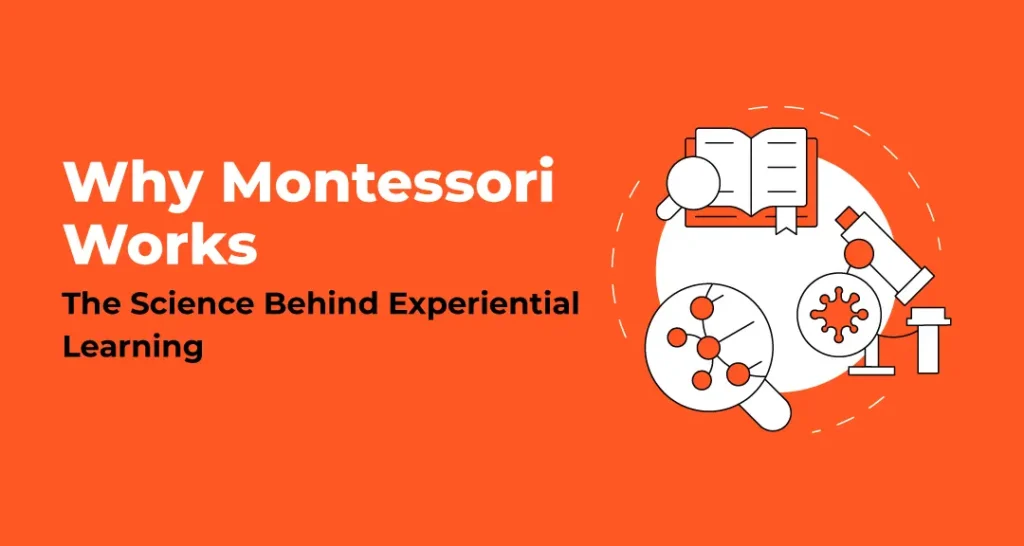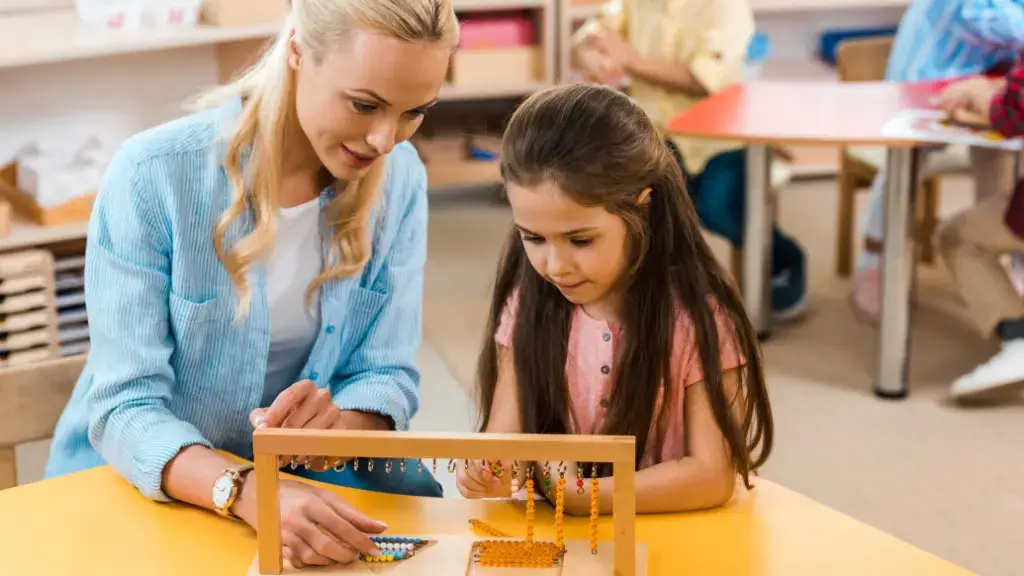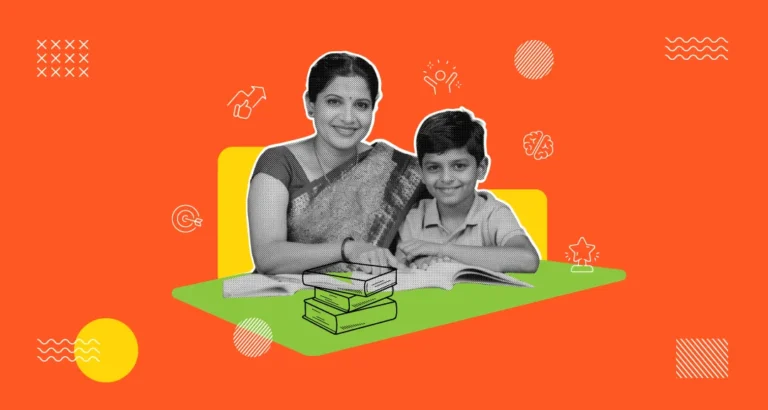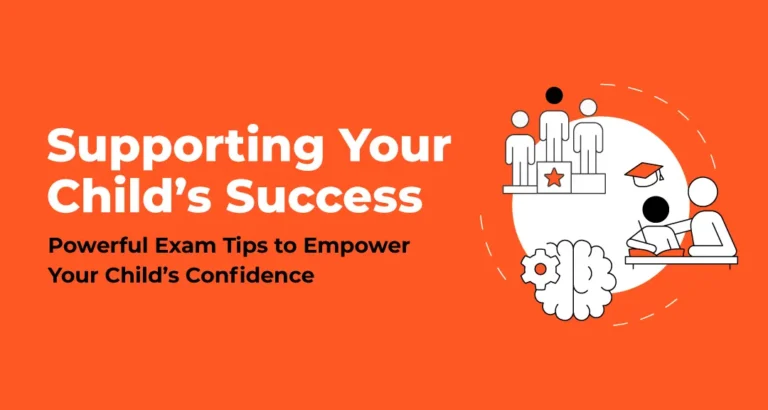Why Montessori Works: The Science Behind Experiential Learning
- Parenting
- March 8, 2025
- VOLT Learning

“A man does not just happen; he does not just grow like a flower. A child does not act as an adult. We apply our energies, our maturity, to do something, but a child acts in accordance with nature in order to construct a man”
-Maria Montessori
The foundation of Montessori education is deeply rooted in the belief that childhood is a crucial step in every child’s growth journey. During this fundamental life phase, students shape themselves as confident individuals. It’s important to remember that children are not passive recipients of knowledge; they gradually develop their understanding when exposed to exploration, experience and interaction. Montessori education empowers children with experiential learning, profoundly impacting a child’s cognitive, social and emotional development.
What makes Montessori Education stand out, and why do children who experience it often develop a lifelong love for learning? Let’s examine the building blocks and science behind this approach to understand how it not only shapes young minds but also sets them on a path of continuous learning and growth, instilling a sense of optimism and hope for the future.
What is Montessori Education?
Montessori Education is a child-centric approach that facilitates independent learning, curiosity and real-world skills. Developed by Dr. Maria Montessori in the early 20th century, this method was based on one simple but revolutionary idea: Children learn best when free to explore, experiment and discover independently.
Montessori classrooms are designed to encourage self-directed learning. Children engaged in Montessori-based experiential learning understand the concepts naturally because they can access hands-on materials, move around and select activities that capture their interest. This, in turn, encourages independence and deep concentration.
In a Montessori classroom, the teacher is a facilitator, providing the right materials and guidance while allowing children to learn at their own pace. Instead of direct instruction, they observe, support, and introduce new challenges based on each child’s progress. Their role is to create a structured, engaging environment that encourages independence, critical thinking, and self-discipline.
What Are the Three Core Elements of Montessori Education?
Montessori education is built upon key principles that promote holistic child development.
1. Observe and follow the child
The epitome of Montessori-based learning firmly rests on letting kids practice the power of observation. Let each child observe and understand their unique interests. This approach allows educators to tailor the learning environment to support individual growth. Maria Montessori emphasized this by stating,
“The observation of how the children pass from the first disordered movements to those which are spontaneous and ordered—this is the book of the teacher; this is the book which must inspire her actions.”
2. Practical life (daily routine work)
When kids are encouraged to incorporate daily activities like cleaning, dressing, and food preparation into their learning structure, they develop coordination, concentration, and self-independence skills. This is about teaching kids to be self-sufficient and integrating these activities into learning. Montessori noted,
“The practical life exercises are formative activities, a work of adaptation to the environment.”
These activities are not just chores but opportunities for learning and growth.
3. Freedom within limits
Montessori classrooms allow children to choose their activities within a structured environment. This balance encourages self-discipline and decision-making skills. Montessori education allows children to choose their activities within a structured environment. This balance between independence and guidance helps children develop critical thinking, problem-solving, and decision-making abilities—all essential for success in adulthood. Montessori articulated this balance:
“To let the child do as he likes when he has not yet developed any control powers is to betray the idea of freedom.”
The Science Behind Montessori Education?
Modern research in cognitive and developmental psychology strongly supports the impacts of Montessori education. It ensures that students feel no burden when learning, as they learn everything while playing through active engagement rather than passive listening. Here’s why Montessori works from a scientific perspective:
1. Hands-on learning to enhance memory retention
Montessori-based classroom learning prioritizes students’ active engagement through sensory experiences—touching, feeling and manipulating objects. When kids are exposed to sensory engagement, their neural connections in the brain strengthen, making information easier to recall.
For example, when children actively use number rods and golden beads to experience mathematical concepts physically, they memorize numbers effectively. Such tangible interaction is crucial in establishing a deep and lasting understanding of the subject.
2. Self-paced learning to boost confidence and motivation
One of the biggest challenges in education is the “one-size-fits-all” approach. Some students struggle to keep up, while others feel held back. Montessori allows children to progress at their own pace. When children master skills on their terms, they develop confidence, intrinsic motivation, and a love for learning—qualities that last a lifetime.
3. Movement aids for cognitive development
Sitting still for long hours goes against the instincts of young children. Montessori classrooms embrace movement as part of learning. Studies show that physical activity stimulates brain development and improves focus, memory, and problem-solving skills. Whether tracing letters in sand, carrying out practical life tasks, or engaging in outdoor activities, Montessori learners are constantly moving—and learning better because of it.
4. Multi-age classroom learning to enhance social and emotional skills
In a Montessori-based classroom, children of multiple ages engage together to create a diverse learning environment. The mixed-age grouping setup is fundamental in helping younger children absorb knowledge from older peers. In comparison, older children behave like mentors and learn cooperation, social skills, patience, responsibility and empathy.
How Do Montessori Materials Help in Experiential Learning?
Montessori education goes beyond textbooks and rote memorization. It is built on an interconnected curriculum where subjects naturally overlap, helping children understand concepts across different levels better.
Learning in a Montessori classroom is not confined to isolated lessons—math connects with practical life skills, language links to sensory exploration, and science blends with everyday observations.
A key element of this approach is Montessori materials, which are carefully designed to capture a child’s curiosity and encourage hands-on exploration. These materials are not just teaching tools; they are structured to provide self-correction and independent discovery, allowing children to grasp concepts through experience rather than instruction.
The effectiveness of Montessori learning materials stems from their capacity to attract children’s attention through sensory appeal such as smooth textures, weighted objects and vibrant colors.
Given below are the impacts of embracing Montessori materials and how children can benefit when engaged in experiential learning:
1. Language development
Montessori classrooms use phonics-based learning to build strong language skills. Children engage with moveable alphabets, storytelling, and interactive reading exercises that naturally enhance vocabulary and comprehension. Since learning is self-directed, children develop a genuine interest in reading and writing rather than seeing it as a chore.

2. Mathematical Understanding
Mathematics in Montessori is introduced through concrete materials that visually represent abstract concepts. Instead of memorizing multiplication tables, children use golden beads, number rods, and fraction insets to understand mathematical relationships hands-on. This builds a solid foundation in logical thinking and numerical literacy.

3. Practical life skills
One of Montessori’s unique aspects is its emphasis on practical life activities—pouring water, tying shoelaces, buttoning clothes, or even preparing food. These seemingly simple tasks teach children coordination, independence, responsibility, and problem-solving skills, preparing them for real-world challenges.

4. Sensorial exploration
Each Montessori learning material is designed carefully to involve students physically and mentally through sensory experience so that they develop observation skills through sound cylinders, texture boards, and geometric solids. The sensory exercises develop mental concentration with better memory capabilities and analytical processing skills.
5. Creativity and problem-solving
Children exposed to Montessori education experience open-ended exploration rather than simply following teachers’ instructions. This way, they enjoy the freedom to experiment, create, and innovate at their own pace. As a result, they develop a mindset of curiosity and resilience, which is imperative for kids to learn problem-solving capabilities.
Understanding the long-term benefits of Montessori Learning
Montessori education is popular for its long-lasting academic and non-academic impacts extending beyond early childhood. It reshapes various aspects of a child’s growth and development. Research indicates that Montessori students outperform other students academically because they perform better in literacy and mathematics and develop superior problem-solving abilities.
The teaching method cultivates teamwork between students and self-control practices, building emotional intelligence for better control and stronger empathy skills. What’s more? Experiential learning also helps students develop greater concentration and enhance their ability to concentrate and practice self-discipline.
Through its emphasis on independent thinking and the development of adaptability skills, Montessori education creates students with excellent problem-solving abilities who are ready to face upcoming challenges.
How does VOLT Learning support Montessori and Experiential Learning?
Montessori education thrives when supported by the right learning materials and digital resources. That’s where VOLT Learning comes in. VOLT Learning offers extensive phonics books and interactive educational resources designed to complement Montessori methods.
By integrating VOLT Learning’s high-quality learning materials, educators can enhance experiential learning and make Montessori education even more effective. VOLT Learning provides research-backed books enriched with interactive storytelling and hands-on activities that are perfect for all Montessori learning environments.
If you’re looking to enrich your child’s learning journey with engaging, research-backed resources, explore VOLT Learning today. Montessori education works, and with the right resources, it works even better!
>> Please Share



